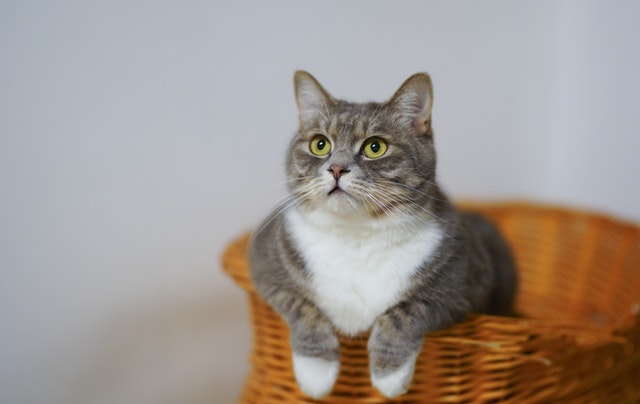This article describes the most frequent errors made by cat owners, some of which may have fatal effects.
The following feline errors may result in issues ranging from home soiling to life-threatening diseases. In contrast, avoiding these frequent mistakes can boost your chances of enjoying a long, healthy, and happy connection with your cat.
Lack of a Pet Loss Prevention Strategy
Most lost dogs are never recovered because their owners failed to identify them. In 1997, just 2% of cats and 15.8% of dogs were reunited with their owners, according to the National Council on Pet Population’s Shelter Statistics Survey, 1994-1997.
All cats should have an identity tattoo, microchip, or collar with contact information to maximize the possibility of locating them if they get lost.
Placing Toxic Substances Where Cats Can Reach Them
Most owners know that cleaning chemicals and antifreeze are hazardous, but many are unaware that even a little lily may be fatal for cats. In addition to onions, numerous other foods, like grapes and macadamia nuts, and most human drugs, including Aspirin® and Tylenol, are toxic to cats. Cats shouldn’t be able to get to these things since they may mistake pharmaceuticals for treats, gnaw on floral arrangements, and help themselves table leftovers.
Feeding Affordable, High-Carbohydrate Cat Foods
Cheap, high-carbohydrate cat food has caused an epidemic of feline obesity. If they are overweight, they are more prone to have severe health issues, including diabetes and inflammatory bowel disease. Therefore, only high-protein cat diets should be offered to cats for optimal health (and reduce the likelihood of traumatic and costly medical problems in later years).
Ignoring Cat Dental Care
Many owners are unaware that chronic dental issues may lead to more significant health issues, including kidney failure. Purchasing an inexpensive finger toothbrush from a pet supply shop and rubbing meat-flavored toothpaste for cats over a cat’s teeth once a week will help avoid these issues (human toothpaste can make cats unwell).
Delaying Necessary Veterinary Care
Failure to offer preventive veterinarian care or delaying treatment for a sick cat may have severe or expensive repercussions. All cats should get necessary immunizations and annual checkups. Consult a veterinarian if your pet exhibits any of the following symptoms:
Making the Litter Box Unattractive
By making the litter box unattractive, owners might cause their cats to pollute the home. In addition, if the litter box is not cleaned regularly enough, many cats may avoid using it.
- It is situated in a loud, high-traffic location or near food and water bowls.
- Other animals or youngsters disturb the cat while he uses the litter box.
- The cat litter is scented.
- The container is covered.
- The litter kind is abruptly changed.
Most cats prefer fine-grained, unscented litter in an open litter box. Mix the new trash with the old waste more each day to gradually transition.
Insufficient Litter Boxes and Food Bowls in Multicat Homes
Each cat should have its litter box, food, and water dish in multicat houses to minimize the possibility of confrontations. A lack of litter boxes is especially troublesome since one cat may perceive the solitary litter box as belonging to the other and choose an alternative restroom located in the home.
Punishing Cat Behavior Issues
Physical punishment and shouting are ineffective with cats because they often fail to correlate it with unwanted behavior and instead assume their owners are being harsh for no reason. Rewarding cats for excellent behavior is far more effective.
Scratching furniture and defecating outside the litter box are cats’ two most typical problem behaviors. Since scratching is normal feline behavior, all cats should be supplied with scratching posts. Sticky Paws tape or motion-sensing electrical gadgets that produce a shocking blast of air when a cat approaches a restricted area may be used to safeguard the furniture. As for home soiling, this often indicates a medical issue, a problem with the litter box, or anxiousness, contrary to what many assume.
Not sterilizing cats
In addition to addressing the issue of pet overpopulation, spaying and neutering safeguard against a variety of health issues, including breast cancer, prostate issues, uterine infections, and fight-related injuries. Several free and low-cost spay-neuter clinics are accessible for financial-conscious pet owners.
Declawing of Cats
Declawing is a far more invasive and unpleasant process than many owners realize, and it may induce permanent behavioral issues in particular cats, such as biting and home soiling. However, other alternatives to declawing include cutting the claws, adding soft plastic nail covers, and safeguarding furnishings with deterrents. Choices to Declawing Cats include further information.

